
You are logged in as
Logout
You are logged in as
Logout
"Becoming comfortable with feedback and constructive criticism, engaging in honest reflection, and practising gratitude will also help our students to continue to develop and grow through new experiences, even if they feel uncomfortable at first."
Dear Parents and Caregivers
Kia ora koutou katoa.
I have been very impressed with the way our students have engaged with the many activities which are designed to help them settle in quickly to their new school year.
Our new students, both in Year 9 and those new to St Andrew’s in the more senior years, have embraced the challenge of attending camps at Castle Hill, often without knowing anyone or having friends in the class. Seniors have assumed their leadership roles with a sense of purpose, whether they be as House Leaders preparing for Athletic Sports Day, Community Service Leaders gearing up for their ‘One Human Race’ March fundraiser, Prefects or Middle School Leaders with duties to complete or activities to organise, or Peer Support Leaders making phone calls to parents of their Year 9 tutor group. Other students have found themselves trialling for sports teams, being interviewed for or embracing exchange opportunities, or speaking in front of their peers. Two students who have come to my attention are Hannah Withers and Ellie Zhou (Year 11) who both attended an intensive programme of study in the January holidays at the New Zealand Olympiad Informatics Summer Camp.
Seeing this kind of engagement of our students makes me reflect upon the importance of ‘being comfortable with feeling uncomfortable’. This is an important attribute in adults, but school is a great place to start. In mastering the art of feeling uncomfortable, students can become empowered to embrace growth, develop resilience, and confront their fears.
Last weekend, as I watched our tennis teams and volleyball teams play in their respective South Island tournaments, I saw them standing up not only to the moments of success and relief but also to those of disappointment and failure. Calming the nerves, showing strength and courage, and supporting each other through the good times and bad is all part of learning to thrive in the face of adversity.
Many of our students when speaking in a chapel service or assembly will reference ‘stepping out of their comfort zone’. By exposing themselves to unfamiliar situations and failure, our students learn to understand that setbacks are inevitable and are opportunities for growth and improvement. This week on Thursday morning all our Year 10 rangatahi are making the early start to experience their Te Waka Calling Ceremony. First introduced to the StAC Year 10 programme in 2014, Te Waka guides all Year 10 students through a number of experiences which we believe have a significant impact on their personal growth. Becoming comfortable with feedback and constructive criticism, engaging in honest reflection, and practising gratitude will also help our students to continue to develop and grow through new experiences, even if they feel uncomfortable at first.
Mark Twain’s well-known quote comes to mind.
“Twenty years from now you will be more disappointed by the things you didn’t do than by the ones you did. So, throw off the bowlines, sail away from the safe harbour. Catch the trade winds in your sails. Explore, dream, discover.”
At St Andrew’s we sincerely wish that every student will leave school knowing they have made the most of what is on offer at StAC. Taking a risk and embracing the unknown or uncomfortable will lead to future opportunities and new horizons.
Ngā mihi nui
Christine Leighton
Rector
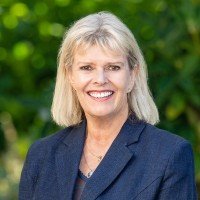
It has been an incredibly busy start to the year. We started with our Mihi Whakatau a couple of special assemblies, Athletic Sports Day, parent information evenings and conferences, Year 9 camps, a very busy co-curricular programme, and students settling in very quickly into a good learning routine. There is a very positive buzz around the College with students excited about the many opportunities on offer.
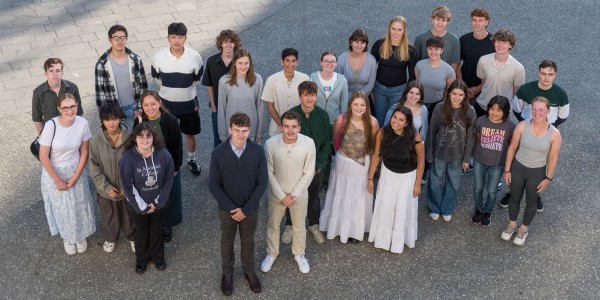
At our Academic Assembly we acknowledged and congratulated all the students who excelled in last year’s NCEA examinations. Despite the many challenges all our students faced during three years of disruption, we have managed to maintain the high standards we have come to expect from both our students and teachers. The Academic Assembly is a very special occasion where we were able to celebrate the 222 students who achieved an NCEA Excellence endorsement. Congratulations to all the students who worked with such perseverance, supported by their teachers, to achieve their goals.
Year 13 Leavers from 2023 returned to receive their Board of Governors scholarship for their Level 3 Excellence endorsement, three subject Excellence endorsements, and NZQA Scholarships. In 2023, our students achieved 64 NCEA Scholarships, six of which were Outstanding Scholarships. This result placed us, for the first time, as the number one school in the South Island for Scholarships achieved. Our guest speaker, Lachie Odlin (Deputy Head Prefect 2023), achieved an unbelievable eight Scholarships, with two at the Outstanding level. Both Lachie Odlin and Gemma Lewis were announced as a Top Scholar (top 60) in the country for their achievements.
Our 2024 Academic Captains, James Hart, Isobel Forsey and Joe Mundy delivered a simple but powerful message on how to further your knowledge through ‘always asking questions’ and the many ways you can achieve this. They also spoke about how this is not only relevant while at school but also when you leave the school gates.
The summer sports season is now in full swing. I so enjoy supporting the teams on the sideline, the enthusiasm and commitment shown by our students is extremely pleasing. The most notable achievements to date have been the Girls’ tennis team who won were crowned South Island champions, and then the Boys’ tennis team and Girls’ A volleyball who were runners-up in their South Island tournaments. Outstanding achievement by all these teams.
The Athletic Sports Day proved to be another colourful and successful day. The House Leaders did an amazing job in preparing the students with their House chants, which they used repeatedly to help lift their teammates when nearing the finish line. House spirit is definitely back!
Thank you to the many parents who, over the past five weeks, have joined us for our beginning of year parent information and orientation functions. Quite apart from parents meeting teachers, these evenings have seen parents meeting parents and there is huge value in this.
We again held the Parent-Student-Tutor Conference at the end of Week 1. The conferences were an opportunity to meet and begin, or re-establish, a relationship with your child’s tutor teacher who has the responsibility to monitor both the general well-being and the academic progress of all the students in their tutor group. There was a huge uptake in the conferences, clearly the relationship between the home and the tutor is a very important one from the parent perspective. A second follow-up conference meeting is scheduled for the beginning of Term 3.
As well as the tutor, please feel that you can contact classroom teachers, the year group Dean, or Head of Middle School or Senior College should you have a question or a specific concern or issue you would like to raise, or simply provide information you think we should know.
The Years 9–13 course outlines are now available on StACNet. The course outlines include course topics and specific assessment dates and deadlines. We strongly encourage you and your child to sit down together to map out the year ahead with respect to workload and key assessment dates.
Last week we had our first round of the Fortnightly Feedback. Fortnightly Feedback is designed to keep you up to date with how your child is progressing with their attitude and effort in each of their classes. Please use the indicators as a discussion point with your child. I urge you to contact the classroom teacher or the Dean if you have any questions or concerns.
Please note that we do not live stream any of our major assemblies. When possible and/or appropriate, we try to create a condensed version from the video footage and then make this available.
It has possibly been the best start to the year in my time at St Andrew’s with respect to setting high standards of uniform and personal grooming. Thank you for playing your part, your support is very much appreciated.
Parent Teacher Interviews
Based on feedback received from parents last year, we have decided to conduct our Parent-Teacher interviews both in person (one night) and via the online platform (two nights). Confirmed interview dates and how to make a booking will be emailed out to you in due course.
Kind regards
Evert van Florenstein
Head of Secondary School
Deputy for Rector

MARCH
1 – Whole non-uniform Day
6 – Secondary School Open Day, 9.00am
7 – Preparatory School and Pre-school Open Day, 11.00am
8 – Founders’ Day and Highland Games
11 – Secondary School Swimming Sports
18 – Sunday 24 March – Summer Tournament Week
29 – Tuesday 2 April – Easter
APRIL
12 – End of Term Assembly
MAY
12–18 – Legally Blonde (Senior College Production)

Imagine an airplane makes an emergency landing and breaks into three parts. As the cabin fills with smoke everybody inside realises: We’ve got to get out of here. What happens?
On planet A, the passengers turn to their neighbours to ask if they’re okay. Those needing assistance are helped out of the plane first. People are willing to give their lives, even for perfect strangers.
On planet B, everyone’s left to fend for themselves. Panic breaks out. There’s lots of pushing and shoving. Children, the elderly, and people with disabilities get trampled underfoot.
Now the question posed in the book I got this scenario from was: Which planet do we live on?
When my Year 13 Religious Education classes were presented with this scenario, only one student in each class said, “We live on Planet A.”
A professor responding to this question answered, “I would estimate about 97 per cent of the people think we live on Planet B. But the truth is, in almost every case, we live on Planet A.”
Why do we think the worst of humanity?
There is a parable of unknown origin, but it contains a profound truth:
An old man says to his grandson: “There’s a fight going on inside me. It’s a terrible fight between two wolves. One is evil – angry, greedy, jealous, arrogant, and cowardly. The other is good – peaceful, loving, modest, generous, honest, and trustworthy. These two wolves are also fighting within you, and inside every other person too.” After a moment, the boy asks, “‘Which wolf will win?” ‘The one you feed.’
In the World Values Survey, a huge poll conducted since the 1980s by a network of social scientist in almost a hundred counties, one standard question is asked, “Generally speaking, would you say that most people can be trusted or that you need to be very careful in dealing with people?”
The results are pretty disheartening. In nearly every country people think most other people cannot be trusted.
Are we feeding ourselves something that colours our view of the world and the people in it? Rutger Bregman in Human Kind suggests that our news and social media are constantly feeding our brains negative perspectives and so we conclude that most of humanity is bad.
Last week the Christian church commenced their season of Lent. As you may or may not know, the season of Lent as currently observed, lasts forty days, Ash Wednesday till Easter. It is a preparation time considering Easter, Christ’s life, death and resurrection.
What does Lent mean for us today? Yes, it is still the church season in which we prepare for Easter Sunday. It is a special time of prayer and reflection, of confession and self-denial, a season of giving up. But it is also a season of giving out.
In Matthew 10:42, Jesus speaks of sharing a cup of water. He isn’t speaking of just sharing a drink with someone. He’s talking about sharing ourselves; He’s talking about the humble act of giving a piece of ourselves to others. He’s talking about giving out of ourselves to share with others.
Christ urges us to give out so that we might be an expression of his love to others. This is good news for humanity and community. This puts us fair and square in Planet A.
Giving out can be practised in the simplest of acts. And these simple acts can have impact far beyond our wildest dreams. Our simple acts of kindness are an expression of the love of God.
Situations, where people are needing our help, are upon us nearly every day and they provide us with an opportunity to give out from ourselves.
What could Lent in 2024 mean for you? Will you contribute to a Planet A or Planet B scenario?
Could I be so bold as to offer a few suggestions. In the tradition of ‘giving out’ something for Lent, might you consider any one of the following…
Imagine the impact that all of us could have on our planet, our community, if we maintained a ‘giving out’ attitude.
Mother Teresa once said: “In this life we cannot do great things. But we can do small things with great love.”
In this season of Lent – whatever your beliefs – may it be a time for ‘Giving out’, and may you be conscious of the opportunities to carry out simple acts of kindness that make living on Planet A our reality.
God bless you and your family.
Rev. Paul Morrow
College Chaplain

Meet our teachers who make the difference at our upcoming Open Days. Please help spread the word for interested families to register online.
Secondary School Open Day: Wednesday 6 March, 9.00am–12.00pm
Last Tour Commences: 10.30am
Rector's Address: 11.00am
Boarding House Open Day: 12.00pm
Preparatory School and Pre-school Open Day: Thursday 8 March, 11.00am–12.30pm
Principal of Preparatory School Address: 11.45am
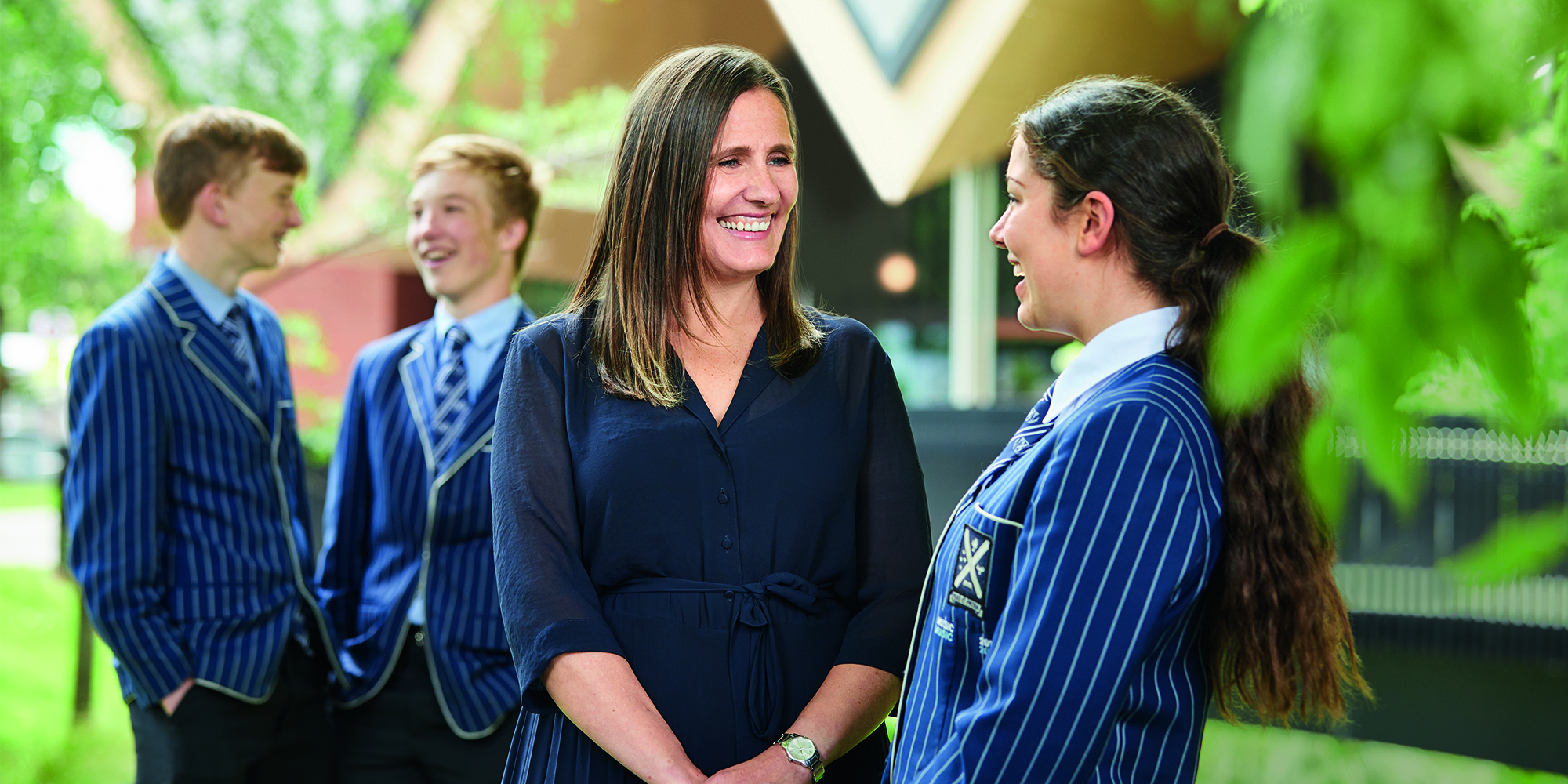
Over the past few weeks, I have been hugely impressed with the way that the Middle School students have engaged with their learning. The wheels are well and truly in motion and students have been performing well in class and getting on with what they need to do throughout a very busy beginning to the year.
It is pleasing to see a lot of the co-curricular programme in full swing. One thing I love about St Andrew’s College are the range of opportunities available to students. If your child wishes to participate in any activities, please ensure they keep an eye on the notices and/or reach out to the relevant staff members. Especially in the first couple of years, I encourage students to do as much as they can, for as long as they can manage it.
With Year 9 camps taking place, I wish all students well as they embark on what will be a wonderful week of challenge, fun, and connection. I have heard some great stories from the camps so far and I am sure that there are many more to come.
Matt Parr
Head of Middle School
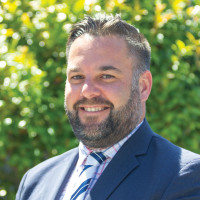
It is the time of the year where the Te Waka programme holds some key events for the programme. At the time of publishing, students will have completed ‘The Calling’ and are preparing for ‘The Departure’, where they connect with whoever is at home on a deeper level. This will be taking place on Tuesday 26 March, alongside our Year 10 Information Evening which you are all encouraged to attend. Thank you to Kate Taylor for her work as the co-ordinator for the Te Waka programme. Thank you also to our amazing Te Waka teachers for their efforts in making these events so special.
It has been great to be able to host our community events like our Year 9 Peer Support and Parent Information evening on the first day of the year, and our recent Year 11 NCEA Information Evening. As mentioned above, we look forward to hosting Year 10 whānau later this month too. We enjoy hosting these types of events to help connect our wider community with what is happening at school. It is a fundamental part of what we do as a College.
Tēnā koutou katoa
Last Friday morning before school, the Senior College was buzzing with students in various extravagant costumes getting ready for the school’s Athletic Sports Day. It was a carnival of colour and energy, and a fantastic example of our StAC community in action. The students were getting ready to race, to have fun, and to cheer each other on, and the track area was a deafening torrent of House chants and noise!
Community is one of the cornerstones of our Senior College philosophy. It’s important that students learn to manage their own lives and pathways, but it’s equally vital that they learn to do this in the company of others as a community of young people. As I’ve written previously, we want our young people to graduate as independent but socially responsible young adults, with the skills to flourish in an ever-changing world.
One of the university halls of residence, College House, had a welcome chapel service last night, and the words of the community prayer were a great summary of what we are trying to recognise here at St Andrew’s. The group response part of the prayer had the following affirmations:
So much of what we are doing is encapsulated in these statements. As the year progresses I’m looking forward to writing more about what this looks like in practice, with everything from table tennis tournaments, to Friday quad organisation for younger students, and some amazing community service initiatives that are already under way. I hope some of your conversations at home will reveal the strong sense of belonging and respect for each other that our young people are developing at St Andrew’s.
Ngā mihi nui
John Ruge
Head of Senior College

Year 13 students are allowed to have lunch leave on Monday, Tuesday, Wednesday, and Thursday lunchtimes, and we’ll be reminding them of the following:
Year 12 students cannot leave the school grounds at all during the school day unless they have permission from parents to attend a valid appointment, and have signed out at the Senior College office.
Our Academic Captains, Isobel Forsey, James Hart and Joe Mundy are in the process of launching two major service initiatives for students. The first is a peer tutoring scheme whereby seniors volunteer to tutor younger students in a variety of subjects. The second is the LEAP reading programme. For this, Year 12 and 13 students will volunteer to read to students in the Preparatory School to help them with their reading fluency and comprehension.
These are great opportunities for senior students to provide some community service and get involved in the wider life of the College.
The Senior College Council, led by Hannah Burnett and Samantha Hooker, have had a great start to the year. We’re only just starting Week 5, and already this group of Year 12 and 13 students have organised a highly successful Valentine’s Day, with decorations all around the Senior College building, and a poetry competition for students. They have also planned and run a Senior College Assembly, with the first round of our Common Room Cup competition and have other plans forming for the next initiatives to build connections within our student body.
The College has a process for applying to bring a vehicle to school. It is outlined in the Senior College Handbook.
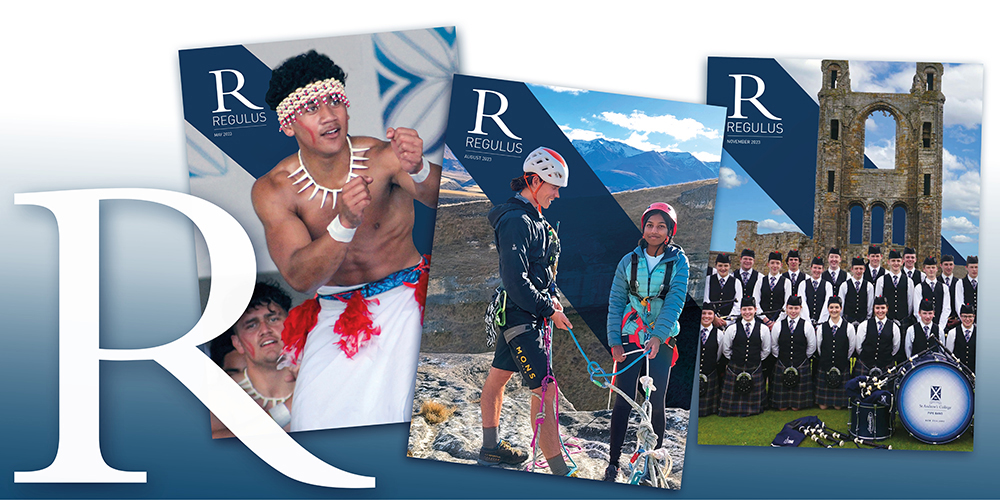
We are pleased to offer limited advertising spaces in the high quality St Andrew's College publication Regulus.
For further information, please contact Head Graphic Designer, Craig Morgan, on CMO@stac.school.nz.
It has been a very productive start to the year in the sport and co-curricular area and it is pleasing to see our students taking full advantage of the many opportunities on offer. Every summer season we have over 60 sports teams representing the College weekly, and students are representing the College with pride with many pleasing performances. The top teams have had a busy time as we approach Summer Tournament week in Week 8. Our teams in futsal, tennis, rowing, and volleyball will be representing the College at the top National level.
We are looking forward to an enjoyable House Swimming day on Monday 11 March and it will be great to see the students getting fully behind their Houses and ensure they compete in lots of events for House points.
Students are to be congratulated on the way they have started the summer sport and cultural season.
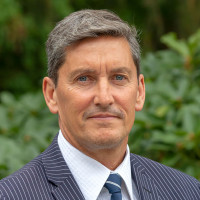
by Alex Chiet, Sport Development National Consultant at Sport New Zealand
The benefits of physical activity and playing sport are far-reaching. For participants, research shows that sport is a form of recreation that makes us remain active, and be happier, healthier people. At a community level, we know sport is a great connector.
Playing sport encourages us to feel included and supported; we often play sport because it gives us a sense of belonging, helps us to feel proud of our community, improves our mental health, and facilitates many different areas of personal development. In fact, the benefits of community sport, and physical activity in general, are hard to overstate.
For the committed armies of volunteer administrators, managers, coaches, and helpers within our school sports programmes, sporting clubs, and youth sport organisations – the people who serve and support community sport and recreation at every level – these factors are super important. And, in these uncertain times, it is worth pausing to recognise, respect, and value their contribution.
Tony Philp, New Zealand Rugby’s High Performance Sevens Manager, puts it well: “Playing sport helps our communities come together to connect, communicate, and care.”
And these benefits are not limited to those who play sport; adults often volunteer to help organise and deliver community sport for the personal fulfilment and the enrichment they gain from being part of a community – a collective of athletes, parents, coaches, and other stakeholders – beyond their homes and workplaces. Indeed, the sense of inclusion and cohesion that’s intrinsic to so many community sport programmes and institutions is arguably their greatest success. Ultimately, the benefits of sport far exceed the (still incredibly important) benefits most commonly associated with physical activity.
In difficult times, volunteering within sporting clubs and community sport organisations becomes a source of well-being akin to other forms of recreation, especially if volunteers have lost jobs, are dealing with personal losses, or are struggling with the challenges of a changing environment. The benefits of sport are not limited to playing sport; volunteering in community sports programmes can help individuals to remain active, engage in personal development and the learning of valuable life skills, build their self-esteem and self-confidence, and feel a sense of social inclusion within the communities in which they participate.
Participation in community sports gives volunteers contact with the outside world while, on a micro level, enabling them to serve their local society. They become part of the team. It may not be their initial aim, but, by helping to sustain invaluable forms of school and community sport, physical activity, and recreation, these committed volunteers don’t just support local children and young athletes; they also support themselves.
While children benefit greatly from playing sport, and other forms of physical activity, it also produces huge benefits for our network of community teams, clubs, organisations, and volunteers — the people who support these crucial programmes so that young people have the opportunity to play sport and experience the considerable benefits of sport. “Connecting to our community is critical to the mental health and well-being of our society, especially in times of uncertainty,” says Tony. “Connecting through sport provides all people – athletes, coaches, administrators, and volunteers of all ages – with a sense of identity, gratitude, belonging, and even joy. People need that self-fulfilment, pride, and connection.”
Tony’s comments align with the Value of Sport study – the results of which state that being physically active creates happier, healthier people, better connected communities, and a stronger society within New Zealand. In fact, 88 per cent of respondents believe that playing sport, and other forms of physical activity, provides them with opportunities to achieve, and helps them build confidence, thereby improving their mental health; 84 per cent believe that participation in sport and physical activity brings people together and creates a sense of social inclusion and belonging; and 74 per cent say that physical activity and playing sport benefits society by helping to promote vibrant and stimulating communities.
As Tony says, the theme that keeps recurring when discussing the benefits of sport and physical activity is the importance of connection. “Connection also provides opportunities for people to help each other out, whether on a personal level, such as ‘how are you?’, or a professional level. It opens up connections to areas that may help with personal circumstances, such as job opportunities, and gives people the ability to have conversations with others about their challenges – which will no doubt help in the long-run.” Essentially, Tony explains, the development of social capital that community sport often fosters can benefit participants – both volunteers and athletes – in their lives well beyond the context of the playing field.
The follow-on from connection is massive if our communities are to care for each other again, he continues: “If anything, COVID-19 has reinforced to people the importance of volunteering their time within their community, in order to help with their mental health and well-being. Contributing to something like community sport helps them know that they still have value and worth.”
Sport – particularly through community sport and youth sports programmes – has a huge array of benefits. Playing sport, like other types of physical activity, is a form of recreation renowned for boosting mental health and well-being; there is the endorphin buzz from exercise, as well as that sense of pride in achieving something. Team sports in particular enable people to feel a sense of belonging and, in some cases, provide them with ‘safe’ environments to be themselves.
Many of the psychological and social skills that we learn through playing sport are also important life skills. For example, participation in sport will often help us to build resilience when times are tough – for instance, when we lose a game, don’t get picked for a team, experience injury, or need to work out how to overcome difficult challenges – in ways that many other types of recreation do not. Whether through school physical education classes, recreational grassroots programmes, or competitive sport, access to organised physical activity can provide children invaluable opportunities for personal development.
There is no doubt that community sport creates a culture that helps to grow people’s identities, senses of belonging, and connections to their communities when they participate. “It really does help people to feel like they are contributing to something bigger than themselves, and allows them to have a sense of pride and gratitude for making a difference to others and the community,” says Tony.
It’s also worth noting that, given the limited funding that many youth clubs and community organisations receive, a significant number of community sport and recreation opportunities are dependent upon the support of volunteers.
Furthermore, Netball Wellington’s Sue Geale says that, if we take community sport away, some community volunteers would also find it difficult and feel isolated. “They would be worried about their physical well-being. And, mentally, not having that contact with the group that they normally experience each week could have a real negative impact.”
According to Geale, being involved in programmes for sport and physical activity doesn’t only help community volunteers remain active; the sense of belonging and feeling of giving support to others provides them with a real lift, and improves their overall mental health. “Community sport gives them a sense of purpose and a feeling of being valued. Being around youth sport can also help the adult feel younger and more energetic, and they can find it rewarding to see athletes grow and develop. By working with a club or team, and helping children to stay involved in sport and physically active, our volunteers can also feel as though they’re keeping them busy, off the street, and out of trouble. It’s a win-win.”
We know that there are many benefits to playing sport, especially for children: we want our young people to remain active; undergo important physical development (such as the development of co-ordination and fundamental movement skills) through physical activity; learn crucial life skills, like how to win, lose, and be resilient when facing adversity; and enjoy the diverse social experiences that can accompany youth sport environments; when they play sport or engage in other forms of organised physical activity, they enjoy all of these benefits and more.
But, as mentioned, the benefits of community sport extend beyond the young people who play sport. Participation as a volunteer can arguably be as beneficial to the volunteers themselves as to the sporting communities they help to support.
We believe the top six benefits for volunteers who involve themselves in community sport are:
This is a good time to remind everyone of our expectations around sporting conduct for players and spectators. It is important that we all continue to role model the sporting behaviour we want from students particularly around the area of respecting the officials and keeping the game in context.
The Performing Arts groups are all well underway this term and working well within the given restrictions. It is great to see the commitment to these groups and enthusiasm for the work. Approximately 170 students enrolled in 20+ different Performing Arts group. Many of these students are in more than one activity and contribute a great deal to the culture of the school.
Last weekend 70 Music students participated in the 2024 Choir Camp. This was held onsite this year due to the State of Emergency on Banks Peninsula. After a quick scramble everything was set to go.
Over the weekend the students spent plenty of time in their choirs learning new material for their upcoming performances, but the focus of the camp was creating an environment where students could connect with others across all the year levels and have fun and build our choral community.
Our Year 13 students stepped up to take the lead in many group activities and the groups had lots of fun. The Friday night concert saw some of the funniest and most enjoyable challenge/performances that have been shared.
On Saturday morning the students participated in general musicianship and vocal workshops. Our Staccoro director, Jared Corbett, worked on holding harmonies through a series of vocal games, while with percussionist, Doug Brush, they spent an amazing time playing in a creative way on a variety of drums improving their sense of rhythm, and finally our vocal tutor, Margot Button, created an interactive workshop about the physiology of singing, and how to care for their voice and get the best out of it.
It was great to share some kai together. We were also entertained by the wonderful adult acapella crew from Voices Co led by Julian Hay.
This year the Senior production is Legally Blonde and will be the first show in the brand-new Gough Family Theatre. This is a well-known show and will delight audiences with its unique characters and high energy dance. Rehearsals are well underway with Laurence Wiseman, Duncan Ferguson, and Hana Pearce. More information about tickets will be out later in the term.
All Dance classes are now underway. We have opportunities for dance in jazz and hip hop, and contemporary catering for students from Years 9–13. These students will be sharing their work in the Dance Revue later in the year.
If your child would like any information about any of the groups mentioned or upcoming events, please email Arts Co-ordinator, Ginnie Thorner, GTH@stac.school.nz.
The rock groups have settled into rehearsals having worked on covers of favourite songs and are currently moving into creating their original pieces.
Good luck to the students heading away this weekend for their annual camp in Hanmer Springs.
|
2–4 March |
Music Camp |
Hanmer Springs |
|
8 March |
Founders’ Day |
Centennial Chapel |
|
22–25 March |
Production Camp |
Living Springs |
|
4 April |
Cultural Showcase |
TBC |
|
7 April |
Senior College Chapel |
Centennial Chapel |
|
Tuesday 9 April |
Performance Evening |
MS01 |
